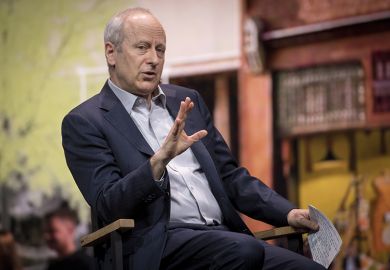In an early book on the "ontology of film" - The World Viewed (1971) - Stanley Cavell remarked on the "paucity of humane criticism" in the appreciation of films. The poverty of criticism referred to here arose from the dissociation of the "technical description" of a film from the "phenomenological analysis" of the experience of watching it. He further extended this description of the condition of criticism first to music and then to philosophy, the latter imagining itself divided between technical "analytic" and experiential "continental" selves. In a distinguished series of subsequent works Cavell explored and challenged this "lack of fit" in philosophical criticism, and in his latest book, A Pitch of Philosophy, he brings the dissociated parts together in a autobiographical reflection on the craft of philosophy.
Cavell relates a personal itinerary which passes, by way of a number of false starts, strange turns and returns, through the realms of music and opera, film, literature and drama, and of course philosophy. The recounting of his passage through those stations of philosophy bearing the names of Emerson, Austin and Derrida is an epic of digression, comprising of happy, missed and later made-up chances. With this Cavell introduces a note of finitude and fallibility into philosophy, combining the surprises that make up the experience of philosophising with some finely crafted, but inconspicuous examples of technical philosophical reasoning. This is evident above all in the first of the three chapters on "Philosophy and the Arrogation of Voice" recounting Cavell's path to philosophy, and then in the consummately staged encounter of Austin and Derrida in "Counter-Philosophy and the Pawn of Voice".
The autobiographical note of Cavell's philosophy, here as in his other writings, evokes an atmosphere of fragility and danger. It is this sense of the constant threat to identity posed by the demands of the world that Descartes sought to overcome in his autobiographical account of the discovery of the cogito and that eventually overcame Nietzsche in his declaration that he was "all the names in history". In the third and final chapter on "Opera and the Lease of Voice" Cavell reflects on the relationship between identity and world presented on film, in theatre, and in opera. Film, for Cavell, emphasises "the self's journeying" in so far as the role is a moment of the actor's trajectory, while in theatre the role prevails over the actor, emphasising the place of "fatedness in human existence". In opera, by contrast, the voice haunts both actor and role, and is present "disembodied within" them both.
In speculating on the voice as beyond person and persona, Cavell reveals one of the central themes of his work, namely haunting and being haunted. Already in the conclusion of his work on the ontology of film Cavell alluded programmatically to the "haunting of the world" in Hamlet and the Flying Dutchman, but in the current work this theme becomes even more insistent, uncannily anticipating Derrida's "hauntology' in Specters of Marx. Whether in the discussion of the haunting of Hamlet, or in the analysis of inheritance in the film Gaslight in which "something is resounding", or even in the reflections on the "necessarily forged" signatures of ghosts, Cavell presents an understated but powerful analysis of a world and a self haunted by voices. The spectral world and self may well be, as Cavell shows, but an effect of philosophy's sceptical relegation of "the ordinary", but it is characteristic of the openness of his philosophising that it is also allowed to be more.
Cavell's work extends philosophy into other domains, but in doing so changes its character and questions many of its parochial habits. His autobiographical exercises exemplify "humane criticism" applied to philosophy, remaining true to the technical demands of the discipline while paying heed to the claims of the experience which sustains it.
Howard Caygill lectures at the University of East Anglia .
A Pitch of Philosophy:: Autobiographical Exercises
Author - Stanley Cavell
ISBN - 0 674 66980 0
Publisher - Harvard University Press
Price - £20.75
Pages - 196pp


